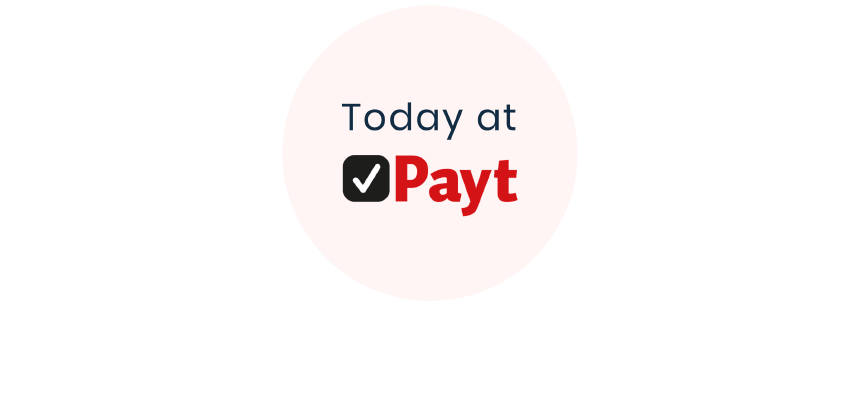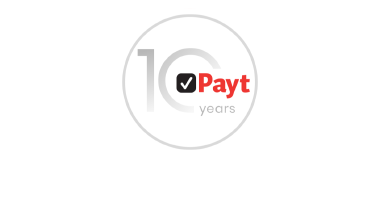Company culture: Work Satisfaction

My name is Sander Kamstra, director and one of the founders of Payt. In growing from an attic idea to a serious organisation, I regularly encounter moments that I think have an impact on our company culture. With this series of blogs I want to try to describe a situation every month that shows who we are as a company. Let me give you a glimpse into life at Payt. There may be articles that apply to your situation in a limited way. But if it has succeeded in stimulating the mind, I am satisfied.
Just for the record
Work satisfaction surely has many definitions. And I don’t want you to think I’m writing some fantasy story. I do know them, companies where everything runs like clockwork, without bosses or fixed structures and where everyone goes to work singing and dancing. You should ask those companies about turnover figures. No, I think a lot of fun work still goes hand in hand with work that just has to be done. Not necessarily fun, ordinary work. I think job satisfaction is mainly found in a shared company vision, influence at work and in work that energises you. In this blog, I address these three components.
A shared company vision
I think a shared company vision is one of the most underrated components of job satisfaction. And I think the emphasis here is more on “shared” than “company vision”. If everyone knows what the long-term goal is and what the goals are for this year, then decisions are easier to make and also easier to explain when questions arise about them. Both high up in an organisation and in the workplace. In our company, it gives a lot of room to make decisions independently. After all, logical decisions don’t have to pass a procuration, is our thought.
The relationship with job happiness is that employees who support our business objectives are, for the most part, in control of their work. When they do their work, how they do it and with whom they do it. Take holiday planning for example. At Payt, employees within departments consult who goes on holiday when so that the company can continue to function as normal. The last time that went wrong was seven years ago, so I was managing the service desk between Christmas and New Year’s Eve. Again, instructive in more ways than one. But certainly no reason to hire a manager who keeps people away from their work. Another example. We eat lunch together in the office, we sit at a long table, eggs are cooked and there is something to eat for everyone. And the place is nice and busy. But not everyone finds that cosy. We think it is very important to give space. Because we are convinced that when someone can be themselves, they are happier and also perform better.
Influence on work
We find influence on what you do and how you do it very decisive for job satisfaction. Increasingly, we integrate our private life with our work life. I sometimes hear people say that they keep their work strictly separate from their private life. Especially after the covid pandemic, nobody is ashamed anymore to say that they are working at home that day because something needs to be done at the house. And I also think that almost everyone has hung the laundry or unloaded the dishwasher during working hours. Right? It makes everything easier. If you then also have the means to decide how and when you work, it makes life a lot more fun, doesn’t it? I realise that despite the freedom, we have many unwritten rules at the same time. For example, about what your code should look like and that it should be structured. The fact that everyone can interfere in everything and suggest new ideas is of course very nice. And in order to keep this unique culture workable, we have to take each other into account.
Another part of our culture is that everyone can do multiple things. One example is that one of our implementation consultants is also responsible for our PowerBI environment and provides useful insights about the performance of our software and our customers. The security policy team consists of a member from support, two from development and a board member. Varied work keeps us on our toes and increases our job satisfaction.
We also regularly have employees who want to do something else within our company. For instance, we have two employees who switched completely from support to development. An unusual step with limited overlap. But we gladly facilitate it. Sometimes such a switch does not turn out well. The employee learns a lot during that period, about the content of his new job, but also about himself. If it goes well, and the transferor feels more at home there, we consider it a great success.
Work that gives you energy
I know so many people who come home tired from work every day. And if someone does physical work, that is also really tiring. But office jobs like the ones we have at Payt shouldn’t really be tiring. If the energy is not flowing nicely for some reason, it is very tiring. We’ve had them at Payt too. Nice and good people, but you can feel from everything that they are not quite in their place. We always deal with that very openly. Even finding out that certain work doesn’t suit you can be celebrated as a success. What I often see is that as soon as it is discussed, the energy flows again and the pleasure returns.
Energy ensures that you feel like going about your day and that you feel like coming home and doing something fun in the evening. A great story, but of course sometimes there are just difficult tasks you don’t know how to solve. That’s when most people lie awake. In the Western world, little attention is paid to listening and feeling energy in our bodies. At the same time, it is not difficult, it just takes 10 minutes a day to do it. It can be done in the car on the way home. I sometimes talk out loud to myself when I name what I have been deflated by that day. We are all special characters of our own and acceptance of situations often has a better effect on energy flows than looking for solutions or getting even.
Related articles

It seems like everyone is working on separate projects, but everyone functions like a vital component of a unified system - Jake Eggen, Developer

If you're looking for a workplace with an excellent work environment, learning opportunities, and fantastic colleagues, then Payt Software is definitely worth considering - Ivan Malykh, Developer

